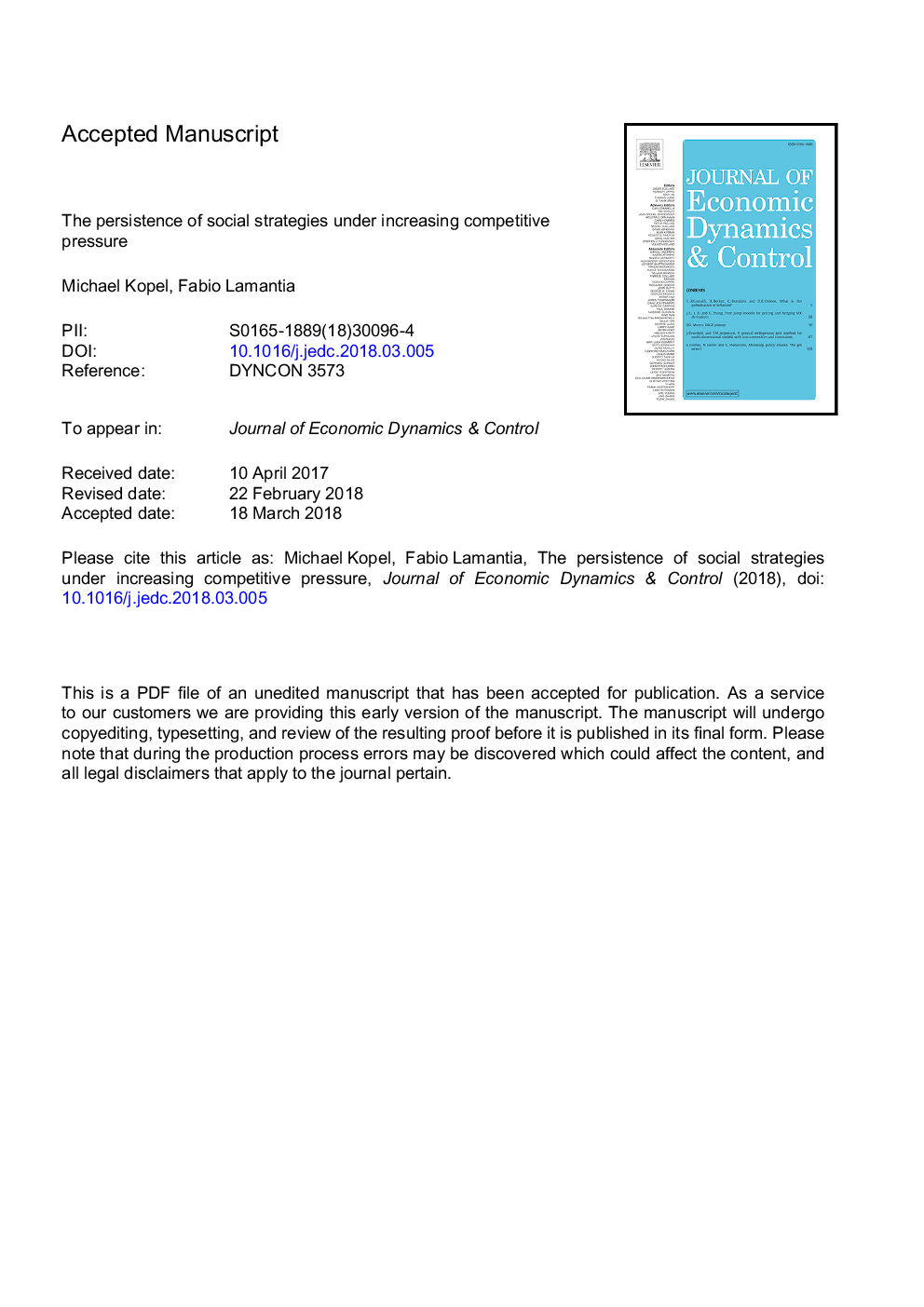| Article ID | Journal | Published Year | Pages | File Type |
|---|---|---|---|---|
| 7358555 | Journal of Economic Dynamics and Control | 2018 | 31 Pages |
Abstract
In this paper we study the long run outcome if firms are repeatedly matched to play a N-firm Cournot oligopoly game and can select their type of business objective. Firms can either be profit-maximizing or socially concerned, also pursuing consumer welfare. We use an indirect evolutionary approach to distinguish between the endogenous, profit-maximizing choice of the firms' business objectives and their corresponding market behavior. Our main result is that the prospects of long run survival of firms pursuing social strategies strongly depends on the number of firms in the industry. If a social strategy entails higher marginal production costs, it is best suited if the number of firms in the industry is not too large. In particular, we demonstrate that the relation between long survival and the level of competitiveness of the industry is inverse U-shaped. We confirm this result by using the concept of coalition stability and further show that if a high number of firms adopt a social strategy, welfare might be lower than with just profit-maximizing firms.
Related Topics
Physical Sciences and Engineering
Mathematics
Control and Optimization
Authors
Michael Kopel, Fabio Lamantia,
